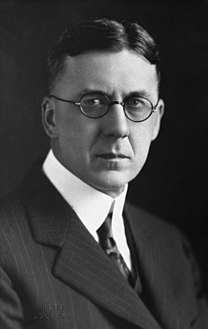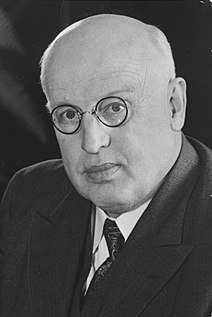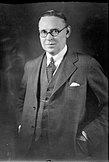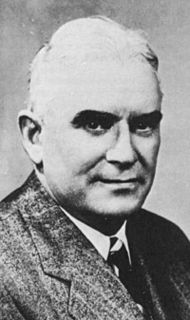| |||||||||||||||||||||||||||||||||||||||||||||||||||||||||||||||||||||||||||||||||||||||||
63 seats in the Legislative Assembly of Alberta 32 seats were needed for a majority | |||||||||||||||||||||||||||||||||||||||||||||||||||||||||||||||||||||||||||||||||||||||||
|---|---|---|---|---|---|---|---|---|---|---|---|---|---|---|---|---|---|---|---|---|---|---|---|---|---|---|---|---|---|---|---|---|---|---|---|---|---|---|---|---|---|---|---|---|---|---|---|---|---|---|---|---|---|---|---|---|---|---|---|---|---|---|---|---|---|---|---|---|---|---|---|---|---|---|---|---|---|---|---|---|---|---|---|---|---|---|---|---|---|
| Turnout | 81.8% | ||||||||||||||||||||||||||||||||||||||||||||||||||||||||||||||||||||||||||||||||||||||||
| |||||||||||||||||||||||||||||||||||||||||||||||||||||||||||||||||||||||||||||||||||||||||
| |||||||||||||||||||||||||||||||||||||||||||||||||||||||||||||||||||||||||||||||||||||||||
The Alberta general election of 1935 was the eighth general election for the Province of Alberta, Canada. It was held on August 22, 1935, to elect members of the Legislative Assembly of Alberta. The newly founded Social Credit Party of Alberta won a sweeping victory, unseating the 14-year government of the United Farmers of Alberta. It was one of only four times that Alberta has changed governments.

Alberta is a western province of Canada. With an estimated population of 4,067,175 as of 2016 census, it is Canada's fourth most populous province and the most populous of Canada's three prairie provinces. Its area is about 660,000 square kilometres (250,000 sq mi). Alberta and its neighbour Saskatchewan were districts of the Northwest Territories until they were established as provinces on September 1, 1905. The premier has been Rachel Notley since May 2015.

Canada is a country in the northern part of North America. Its ten provinces and three territories extend from the Atlantic to the Pacific and northward into the Arctic Ocean, covering 9.98 million square kilometres, making it the world's second-largest country by total area. Canada's southern border with the United States is the world's longest bi-national land border. Its capital is Ottawa, and its three largest metropolitan areas are Toronto, Montreal, and Vancouver. As a whole, Canada is sparsely populated, the majority of its land area being dominated by forest and tundra. Consequently, its population is highly urbanized, with over 80 percent of its inhabitants concentrated in large and medium-sized cities, many near the southern border. Canada's climate varies widely across its vast area, ranging from arctic weather in the north, to hot summers in the southern regions, with four distinct seasons.

The Legislative Assembly of Alberta is one of two components of the Legislature of Alberta, the other being Elizabeth II, Queen of Canada, represented by the Lieutenant-Governor of Alberta. The Alberta legislature meets in the Alberta Legislature Building in the provincial capital, Edmonton. The Legislative Assembly consists of 87 members, elected first past the post from single-member electoral districts.
Contents
Premier John E. Brownlee had resigned on July 10, 1934, when he was sued and found liable for the seduction of a young clerk working in the Attorney-General's office. Although the verdict was immediately set aside by the presiding judge, the scandal seriously damaged the UFA's reputation among socially conservative Albertans. Provincial Treasurer Richard G. Reid succeeded him, but was unable to recover the party's popularity. All of the UFA's 36 MLAs lost their seats in the worst defeat ever suffered by a sitting provincial government in Canada. Social Credit won 56 of the 63 seats in the legislature, and over 50% of the popular vote.

John Edward Brownlee, was the fifth Premier of Alberta, Canada, serving from 1925 until 1934. Born in Port Ryerse, Ontario, he studied history and political science at the University of Toronto's Victoria College before moving west to Calgary to become a lawyer. His clients included the United Farmers of Alberta (UFA); through his connection with that lobby group, he was involved in founding the United Grain Growers (UGG).
The Alberta Liberals in this election ran with the tactically fatal slogan, the "rest of Canada can't be wrong"—referring to the popularity of the Liberal Party in the rest of the country. It did not work; they had their seat count cut in half. However, due to the UFA being swept from the legislature, the Liberals wound up as the Official Opposition. The Conservatives lost four of their six seats.
The Leader of Her Majesty's Opposition has been a position in the Legislative Assembly of Alberta since 1905.
The Progressive Conservative Association of Alberta was a provincial centre-right party in the Canadian province of Alberta. The party formed the provincial government, without interruption, from 1971 until the party's defeat in the 2015 provincial election under Premiers Peter Lougheed, Don Getty, Ralph Klein, Ed Stelmach, Alison Redford, Dave Hancock and Jim Prentice. At 44 years, this was the longest unbroken run in government at the provincial or federal level in Canadian history.
Not even the Socreds had expected to win the election. Indeed, they had not even had a leader during the campaign, even though the party's founder and guiding force had been William Aberhart, a Baptist pastor from Calgary. When the newly elected Socred MLAs held their first caucus meeting, the first order of business was to select a leader and premier-designate. Aberhart was the obvious choice, but had to be prodded to take the job. He was sworn in as premier on September 3.

William Aberhart, also known as Bible Bill for his outspoken Baptist views, was a Canadian politician and the seventh Premier of Alberta. He was the founder and first leader of the Alberta Social Credit Party, which believed the Great Depression was caused by ordinary people not having enough to spend. Therefore, Aberhart argued that the government should give each Albertan $25 per month to spend to stimulate the economy, by providing needed purchasing power to allow needy customers to buy from waiting businesses.

Calgary is a city in the Canadian province of Alberta. It is situated at the confluence of the Bow River and the Elbow River in the south of the province, in an area of foothills and prairie, about 80 km (50 mi) east of the front ranges of the Canadian Rockies. The city anchors the south end of what Statistics Canada defines as the "Calgary–Edmonton Corridor".
The turnout of the 1935 election topped 80%, and no election in Alberta has come close to this mark.
This election campaign is seen as the most negative in Alberta's history, with reports of Social Credit members, operating openly and on Aberhart's directives, defacing the campaign signs of opponents and drowning their speeches by honking car horns. Many campaign ads also focused mostly on attacking the opposing parties.
After the 1935 election results were in, newspapers across North America took notice, with the Boston Herald running the headline "Alberta Goes Crazy!". [1]

The Boston Herald is an American daily newspaper whose primary market is Boston, Massachusetts and its surrounding area. It was founded in 1846 and is one of the oldest daily newspapers in the United States. It has been awarded eight Pulitzer Prizes in its history, including four for editorial writing and three for photography before it was converted to tabloid format in 1981. The Herald was named one of the "10 Newspapers That 'Do It Right'" in 2012 by Editor & Publisher.
This shift marked the first in Social Credit's nine back to back election victories. The UFA never recovered from this wipeout defeat, and withdrew from politics altogether in 1937.











